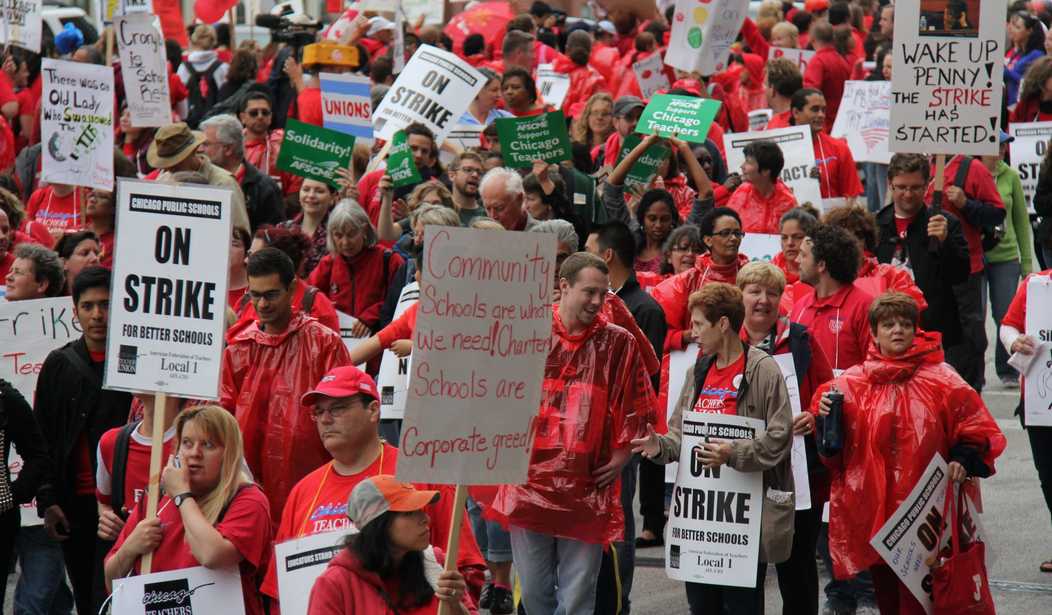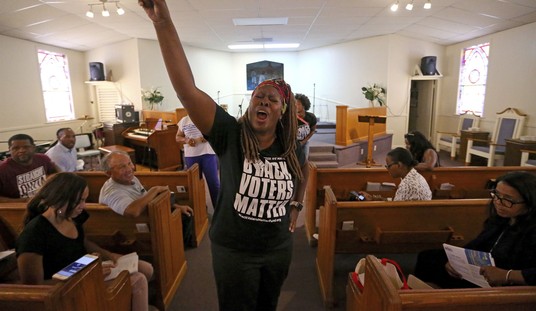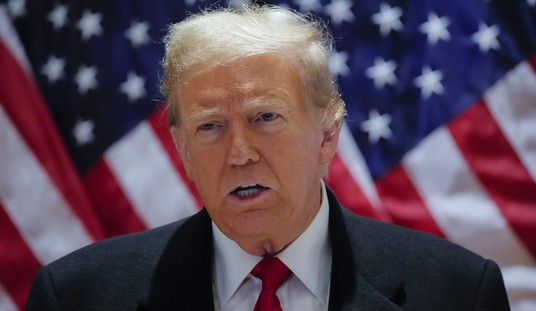ORLANDO, FL — Labor reform activists at Americans for Prosperity’s Defending the American Dream Summit on Saturday argued that unions should represent their workers, and referenced a recent study showing that 94 percent of union members across America did not vote for the union which represents them.
“There’s a new study that just came out in time for Labor Day, and this is a pretty alarming statistic,” declared Akash Chougule, AFP’s director of policy. “94 percent of union members in the United States did not vote for the union that represents them. They either simply inherited it from when it was voted in decades ago, or they voted ‘no’ when it came up for election.”
This number comes from a Heritage Foundation study published Tuesday which found that of the 8 million workers represented by unions, only 478,189 workers “voted to unionize (1973-2015) and still work for the same employer.” The study only included private-sector workers regulated under the National Labor Relations Act, so it does not cover many types of unions, such as teachers unions.
Nevertheless, the number is staggering — only 6 percent of these workers have actually voted for their unions. These were recertification votes to select the actual union structure, as opposed to votes for specific union leaders. Despite this crucial distinction, it is still egregious to consider that 94 percent of union workers have not voted to be represented by a union in the first place.
Chougule referenced some teachers unions in a similar situation. The unions “were voted in in the 1950s and 1960s,” but now “there is not a single member or teacher who voted for that union and who still works in that school district.” When liberals push union rights, remember they are talking about a chronically out-of-date structure.
In this context, AFP’s Wisconsin State Director Eric Bott declared that union recertification (workers voting on whether or not to be supported by their particular union, not just for union representatives) is “a quite progressive idea.”
Chougule recalled a less-known effect of Governor Scott Walker’s reforms: “It asked every single public employee union in the State of Wisconsin to stand for re-election every year, so they were accountable to the people they are representing today.”
Bott acknowledged that some conservatives might fear this requirement could end up being costly. Federal elections every two years have become famously expensive, so what would keep union elections from racking up the bills? But this reform has already come into effect, and the costs are rather small, about $2.50 per person. “Democracy and freedom for less than the price of a cup of coffee in Wisconsin,” Bott quipped.
The more prominent union issue, Right to Work, focuses on the ability of workers to refuse to join a union and thereby avoid paying dues. The three panelists each hailed from a state which legalized Right to Work in recent years: Wisconsin (Eric Bott), Michigan (F. Vincent Vernuccio, director of labor policy at the Mackinac Center for Public Policy), and West Virginia (AFP State Director Jason Huffman).
Huffman explained the basic concept of Right to Work in these terms: “People’s paychecks and the money they need to feed themselves should not be up for grabs by unions.” This is a major issue because unions spend heavily on politics, and they do not represent the political leanings of their members.
“In 2012, unions spent about $700 million on politics,” Chougule noted. “90 percent of that spending went to support Democrats or liberal causes. 40 percent of union members voted for Mitt Romney for president. That’s not what representation looks like.”
Right to Work laws have passed in 26 states, but liberals have found a way to challenge them in the courts. Using the logic of accusing non-dues-paying workers of being “free riders,” activists argue that unions have a constitutional right to the dues of workers they represent.
Vernuccio called “free riders” “a nasty, nasty term.” It suggests that workers gain certain benefits by being represented by unions and should therefore pay the union accordingly. But if a worker wishes to opt out of a union, he should neither pay dues nor be represented by the union. Vernuccio actually suggested that so-called free riders are actually “forced riders” because “they’re still stuck accepting that representation” from the union.
Next Page: Why do liberals think Right to Work is unconstitutional?
When Chougule said that liberals argue “Right to Work is unconstitutional,” he received laughter from the audience. Nevertheless, he explained the reasoning behind this attack: “Because they have to represent free riders, that’s a violation of the U.S. Constitution’s Takings Clause.”
The Fifth Amendment to the Constitution declares that “private property [shall not] be taken for public use, without just compensation.” According to the likely union argument, the Takings Clause stipulates that union representation is “just compensation,” so the unions are justified in taking “private property” — in the form of dues. “Therefore, Right to Work should be struck down across the nation, in all 26 states,” Chougule said, explaining the liberal position.
According to this argument, a worker’s dues belong to the union, so they are no longer private property. Using such arguments, liberals in Idaho, Michigan, West Virginia, and Wisconsin have mounted legal challenges to Right to Work, and the battle could end up in the Supreme Court.
Great #RightToWork panel at #Dream16: @AkashJC, @vinnievernuccio, @BottAFP, & @HuffmanJE #tcot @AFPWI @AFPMichigan pic.twitter.com/zOxYBIy2tU
— Tyler O'Neil (@Tyler2ONeil) September 3, 2016
But many union members “don’t accept the value proposition of their union, they don’t see the worth in the dues they pay each month,” Bott explained.
Perhaps for that reason, Right to Work has picked up steam in recent years. Despite huge political battles, legislators who supported this labor reform have been re-elected. Vernuccio noted that “every single legislator who backed Right to Work in Michigan was re-elected,” and it was not even an issue in the elections! Wisconsin Governor Scott Walker famously won a recall election and re-election — by a larger margin than his original victory — after pushing controversial labor reforms.
Chougule noted that the year after Indiana passed Right to Work, that state had the largest number of union jobs across the country. Vernuccio pointed out that Right to Work states actually add more union jobs than non-Right to Work states. He predicted that Kentucky, a heavy coal state like West Virginia, is most likely to be the next Right to Work state, followed by Missouri, and possibly in a few years, New Hampshire.
The popularity and success of Right to Work may suggest that union recertification may indeed become a major issue in labor reform. If unions have the right to seize private property like the government, and if workers cannot vote whether or not to be represented by a union, how is this not “taxation without representation?”
As Chougule noted at the end of the panel, “We’re not anti-union. We just want unions to put people over politics.” What’s so bad about that?








Join the conversation as a VIP Member